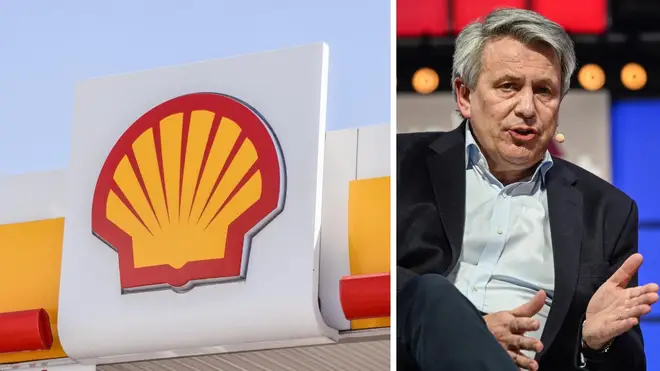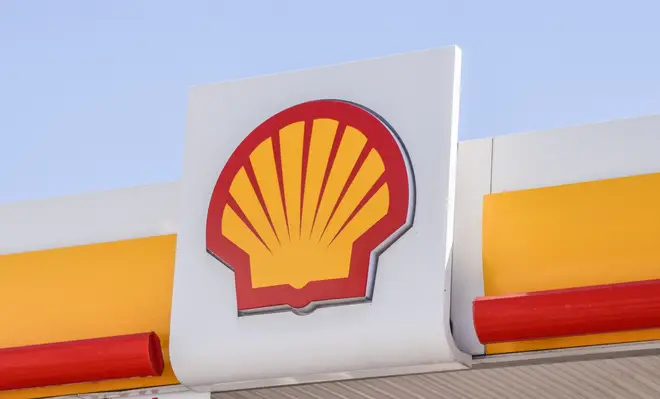
Paul Brand 10am - 12pm
5 October 2022, 11:02

Outgoing Shell boss Ben van Beurden has said windfall taxes will be "inevitable" in "protecting the poorest", as an energy economist and former government advisor predicts further windfall taxes will be "the next U-turn from the government".
The executive said that energy markets cannot behave in a way that "damage a significant part of society".
Speaking to the Energy Intelligence Forum, an oil industry event, Mr van Beurden said: "You cannot have a market that behaves in such a way - logically and effectively and everything else - that it's going to damage a significant part of society."
He said that "one way or another" there would be government intervention that "results in protecting the poorest".
"That probably means governments need to tax people in this room to pay for it - I think we just have to accept [that] as a societal reality," he said, "There is a discussion to be had about it but I think it's inevitable."

Speaking to LBC's Nick Ferrari on October 5 , Foreign Secretary, James Cleverly, argued against a further windfall tax, on the grounds that the money it would make has been overstated:
"They were talking about global energy profits, most of which are not in the UK and therefore cannot be taxed by the UK."
But later on Ferrari's radio show, Professor Nick Butler, who worked for BP as a group vice president for policy and strategy and served as a senior policy advisor to Gordon Brown, predicted that the government would bring in another windfall tax.
"I think it's going to be the next u-turn from the government - whatever Mr Cleverly says," said Mr Butler. "And it will bring in some money, not a fortune but quite a lot of money that can be used in good ways."
"I think many other countries are putting in place - particularly in Europe - windfall taxes so that when there is this sort of exploitation ... they [energy companies] will pay.
"That is just how things work, they should be able to make a decent, predictable profit - they need that to keep investing. But when the profits are so high, they should be giving something back, and I'm very pleased Shell and BP are saying so."

The prime minister has so far ruled out extending the Energy Profits Levy, the existing windfall tax measures implemented earlier this year:
"The government has been clear that it wants to see the oil and gas sector reinvest its profits to support the economy, jobs, and the UK's energy security," a UK Government spokesperson said.
The debate over further windfall taxes comes after the government u-turned on cutting the top rate of income tax, and Liz Truss struggles with cabinet ministers publicly questioning government policies - defying cabinet 'collective responsibility', which usually compels cabinet members to publicly support government policy.
Leader of the Commons, Penny Mourdant, said previously that it "makes sense" to raise benefits in line with inflation - which the government has not committed to doing:
"I’ve always supported - whether it’s pensions, whether it’s our welfare system - keeping pace with inflation. It makes sense to do so. That’s what I voted for before."
Home Secretary, Suella Braverman, has also said Tory rebels "staged a coup" against the Prime Minister over the government's U-turn on cutting income tax, with her remarks supported by Levelling Up Secretary, Simon Clarke.
The prime minister is set to give her first speech as Tory leader, at the Conservative Party conference on Wednesday 5 October, in which she will double down on her growth agenda.
Ms Truss will acknowledge her plans to reshape the country will cause "disruption" but insist there can be no more "drift and delay" in the effort to boost economic growth.